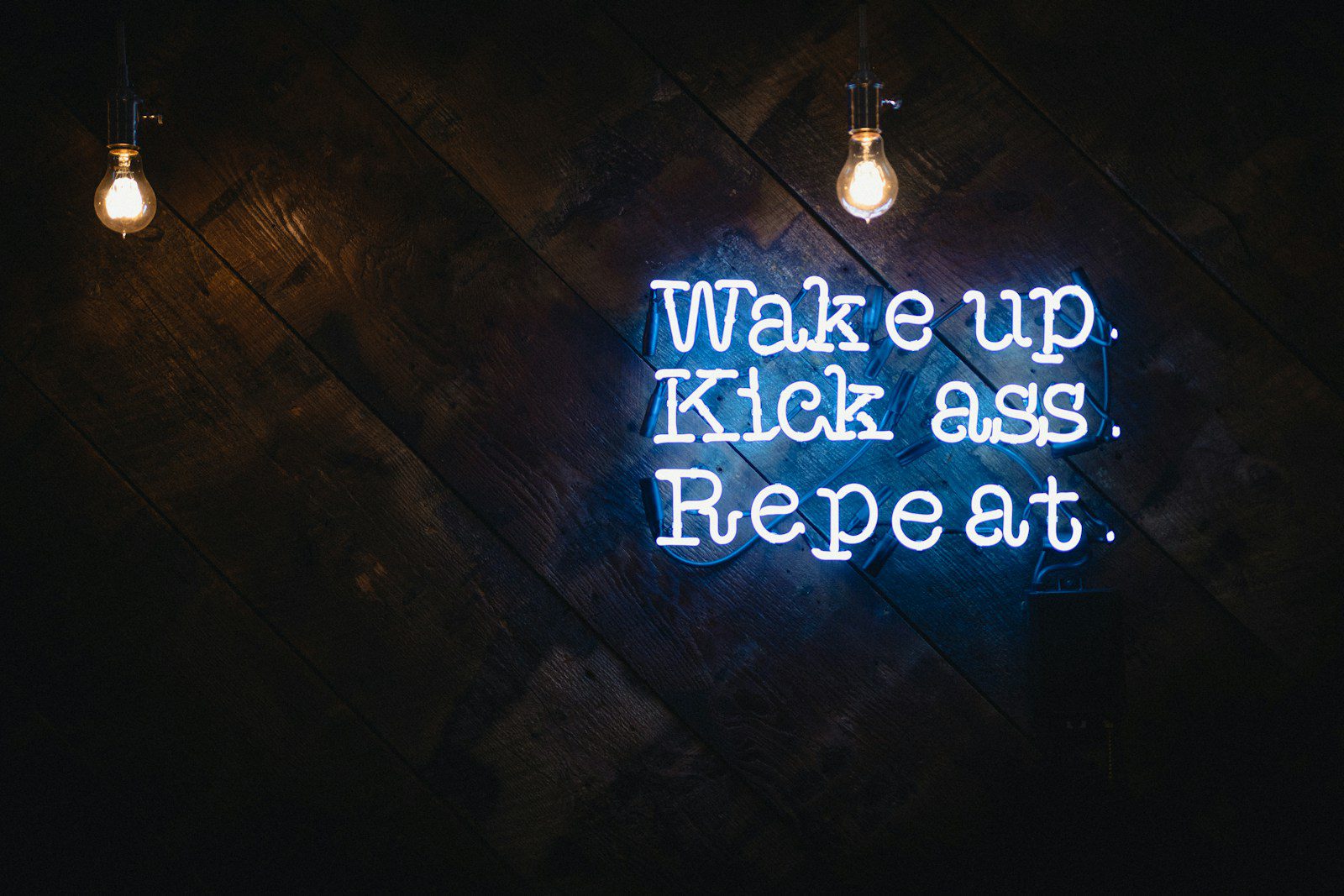
Mastering Decision-Making: How to Overcome Analysis Paralysis with ADHD
Making decisions can often feel overwhelming, especially for individuals with ADHD. This article explores the concept of analysis paralysis, a common experience for those with ADHD, and provides practical strategies to help overcome it. By understanding the challenges and implementing effective techniques, individuals can navigate decision-making with greater confidence and ease.
Key Takeaways
Table of Contents
Toggle- Analysis paralysis is a common issue for people with ADHD, making it hard to choose between options.
- Executive function difficulties, like poor planning and memory, can worsen indecision.
- Emotional regulation issues often lead to fear of making mistakes, causing further paralysis.
- Breaking decisions into smaller steps can make the process less daunting and more manageable.
- Utilising support systems, such as ADHD coaching, can provide guidance and encouragement in decision-making.
Understanding Analysis Paralysis in ADHD

The Role of Executive Function
Individuals with ADHD often face challenges due to executive function difficulties. This can lead to analysis paralysis, where the ability to make decisions is hindered. The brain struggles to process information effectively, making it hard to weigh options and foresee outcomes.
Impact on Daily Life
The effects of analysis paralysis can be significant. Daily tasks may feel overwhelming, leading to:
- Procrastination on simple chores
- Difficulty in making choices, like what to eat or wear
- Increased stress and anxiety due to indecision
Common Triggers for Indecision
Several factors can trigger indecision in those with ADHD, including:
- Sensory overload from too much information
- Fear of making the wrong choice
- Low self-esteem and confidence in decision-making abilities
Understanding these triggers is crucial for managing ADHD paralysis effectively. By recognising what causes indecision, individuals can develop strategies to cope better and make clearer choices.
Strategies to Overcome Decision-Making Challenges
Making decisions can be tough, especially for those with ADHD. Here are some effective strategies to help you navigate through decision-making challenges:
Breaking Down Decisions
- Simplify your choices: Limit the number of options you consider. Instead of feeling overwhelmed by many choices, try to narrow it down to three or four that are most relevant.
- Divide complex decisions: Break larger decisions into smaller, manageable parts. This can make the process feel less daunting and help you focus on one step at a time.
- Set time limits: Give yourself a specific timeframe to make a decision. This can help prevent overthinking and keep you moving forward.
Utilising Decision-Making Tools
- Visual aids: Use charts or mind maps to organise your thoughts and compare options more effectively. Visual tools can help clarify your choices.
- Decision matrices: Create a simple table to weigh the pros and cons of each option. This structured approach can make it easier to see which choice aligns best with your goals.
- Apps and software: Consider using decision-making apps that can help you track your options and outcomes, making the process more interactive and engaging.
Seeking Support and Guidance
- Consult trusted friends or professionals: Sometimes, talking to someone you trust can provide a fresh perspective and help you make a decision. They can offer insights you might not have considered.
- Join support groups: Connecting with others who understand your challenges can provide encouragement and shared strategies for overcoming indecision.
- Celebrate small wins: Acknowledge and reward yourself for making decisions, no matter how small. This practise can boost your confidence and motivate you to keep moving forward.
Don’t let decision paralysis hold you back. With the right strategies and support, you can learn to navigate the complexities of decision-making and move forward with confidence. Remember that you have the power and the potential to create the life you want, one decision at a time.
The Neurological Basis of Decision Paralysis
The Anterior Cingulate Cortex
The anterior cingulate cortex (ACC) plays a crucial role in decision-making. It helps us evaluate options and manage conflicting information. When this area is not functioning optimally, it can lead to indecision and difficulty in making choices.
Cognitive Flexibility and ADHD
Individuals with ADHD often struggle with cognitive flexibility, which is the ability to adapt thinking and behaviour in response to changing situations. This can result in a rigid thought process, making it hard to shift from one option to another.
Emotional Regulation Challenges
Emotional regulation is another significant factor. People with ADHD may find it hard to manage their emotions, leading to heightened anxiety when faced with decisions. This emotional turmoil can further complicate the decision-making process, causing analysis paralysis.
"Understanding the brain’s role in decision-making can empower individuals with ADHD to develop strategies that enhance their ability to choose effectively."
In summary, the neurological basis of decision paralysis in ADHD is complex, involving various brain functions and emotional factors. By recognising these challenges, individuals can work towards improving their decision-making skills.
Practical Tips for Enhancing Decision-Making Skills
Implementing Mindfulness Techniques
Mindfulness can be a powerful tool for improving decision-making. By focusing on the present moment, you can reduce anxiety and make clearer choices. Practising mindfulness helps you become aware of your thoughts and feelings, allowing you to respond rather than react impulsively. Here are some techniques to try:
- Deep breathing exercises to calm your mind.
- Meditation to enhance focus and clarity.
- Journaling to reflect on your thoughts and decisions.
Developing a Routine
Establishing a daily routine can significantly aid in decision-making. A consistent schedule reduces the number of choices you need to make, which can help prevent overwhelm. Consider these steps:
- Set specific times for daily tasks.
- Prioritise your most important decisions for when you feel most alert.
- Include breaks to recharge your mind.
Using Visual Aids for Clarity
Visual aids can simplify complex decisions. They help you see options clearly and compare them effectively. Here are some ideas:
- Create charts to outline pros and cons.
- Use mind maps to explore different choices.
- Develop a decision matrix to evaluate options based on criteria that matter to you.
Remember, decision-making is a skill that can be improved over time. By integrating these practical tips into your life, you can enhance your ability to make informed choices and reduce the stress associated with indecision.
Harnessing ADHD Strengths to Combat Indecision

Embracing Creativity and Innovation
Individuals with ADHD often possess a unique creativity that can be a powerful tool in decision-making. By embracing this strength, you can:
- Generate multiple ideas quickly.
- Approach problems from different angles.
- Use brainstorming techniques to explore options without the pressure of immediate decisions.
This creative approach can help break the cycle of indecision.
Aligning Decisions with Personal Values
When faced with choices, aligning your decisions with your core values can simplify the process. Consider:
- What truly matters to you?
- How does each option reflect your values?
- Will this decision lead to personal satisfaction?
By focusing on what is important, you can reduce the noise of indecision.
Celebrating Small Wins
Recognising and celebrating small achievements can boost your confidence and motivation. Here are some ways to do this:
- Keep a journal of your decisions and their outcomes.
- Reward yourself for making choices, no matter how small.
- Share your successes with friends or family to reinforce positive feelings.
Small victories can lead to greater confidence in decision-making.
By harnessing these strengths, individuals with ADHD can transform their approach to decision-making, turning potential indecision into empowered choices.
The Impact of Emotional Dysregulation on Decision-Making

Understanding Emotional Triggers
Emotional dysregulation can significantly affect decision-making in individuals with ADHD. When emotions run high, rational thinking often takes a back seat. This can lead to impulsive choices that may not align with long-term goals. Common emotional triggers include:
- Stressful situations
- Overwhelming choices
- Fear of failure
Managing Stress and Anxiety
To improve decision-making, it is essential to manage stress and anxiety effectively. Here are some strategies:
- Practise deep breathing exercises.
- Engage in regular physical activity.
- Use mindfulness techniques to stay present.
Building Emotional Resilience
Building emotional resilience is crucial for better decision-making. This involves:
- Recognising and understanding your emotions.
- Developing coping strategies for challenging situations.
- Seeking support from friends, family, or professionals.
Emotional dysregulation can lead to impulsive decisions, which may result in negative consequences. By learning to manage emotions, individuals can make more thoughtful choices that enhance their overall well-being.
Creating a Supportive Environment for Better Decisions

Creating a supportive environment is essential for individuals with ADHD to make better decisions. A well-structured space can significantly reduce stress and enhance focus. Here are some key strategies to consider:
The Role of ADHD Coaching
- Personalised Guidance: ADHD coaching provides tailored strategies that cater to individual needs, helping to navigate decision-making challenges.
- Accountability: Regular check-ins with a coach can keep you motivated and on track.
- Skill Development: Coaches can teach effective decision-making techniques that align with your unique strengths.
Building a Community of Support
- Connect with Others: Surround yourself with supportive friends and family who understand your challenges.
- Join Support Groups: Engaging with others who share similar experiences can provide encouragement and new perspectives.
- Share Success Stories: Learning from others’ experiences can inspire and motivate you to overcome your own hurdles.
Accessing Resources and Tools
- Utilise Visual Aids: Tools like charts and mind maps can help clarify options and simplify complex decisions.
- Organisational Tools: Use planners and reminder apps to keep track of tasks and deadlines, reducing overwhelm.
- Educational Resources: Explore articles and workshops focused on ADHD to gain insights and strategies for better decision-making.
Creating a supportive environment is not just about physical space; it’s about fostering relationships and accessing the right tools to empower your decision-making process.
By implementing these strategies, individuals with ADHD can cultivate a more conducive atmosphere for making informed and confident decisions.
Creating a supportive environment is key to making better choices. By surrounding yourself with understanding people and resources, you can boost your confidence and clarity. If you’re ready to take the next step in your journey, visit our website for more information and support!
Final Thoughts on Overcoming Decision Paralysis with ADHD
In conclusion, overcoming decision paralysis is essential for individuals with ADHD to lead fulfilling lives. By understanding the unique challenges posed by ADHD, such as difficulty in weighing options and fear of making mistakes, one can develop effective strategies to make decisions more confidently. Remember, it’s okay to seek help and use tools that simplify the decision-making process. Embrace your strengths and take small steps towards your goals. With practise and support, you can break free from indecision and create the life you desire, one choice at a time.
Frequently Asked Questions
What is analysis paralysis?
Analysis paralysis is when someone struggles to make a decision because they overthink the options. This is common for people with ADHD.
How does ADHD affect decision-making?
ADHD can make it hard to focus, plan, and organise thoughts, leading to difficulties in making choices.
What are some strategies to overcome indecision?
Breaking decisions into smaller steps, using decision-making tools, and seeking help from others can improve decision-making.
Why do people with ADHD often feel overwhelmed by choices?
People with ADHD may find too many options stressful, leading to confusion and difficulty in making a choice.
How can mindfulness help with decision-making?
Practising mindfulness can help calm the mind, making it easier to focus on the present and make clearer decisions.
What support is available for individuals with ADHD?
Support can come from ADHD coaching, community groups, and resources that offer strategies to manage ADHD challenges.





